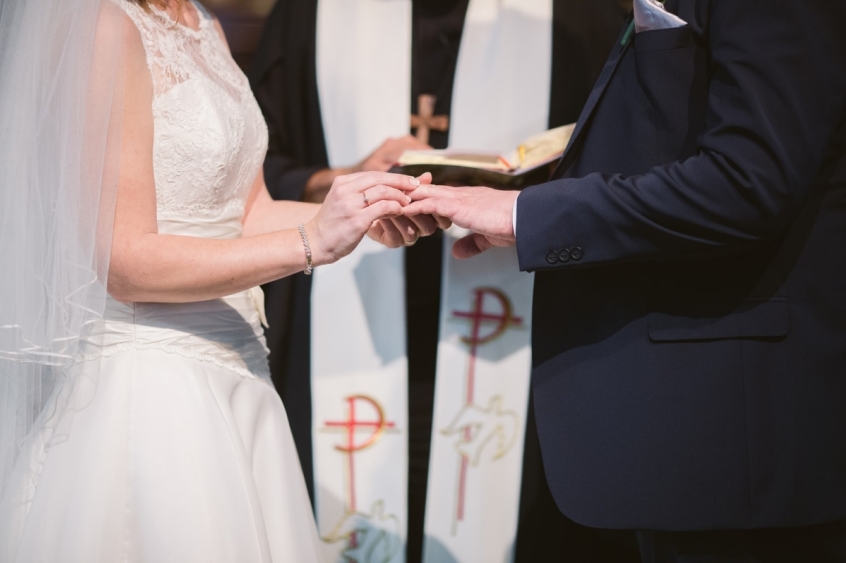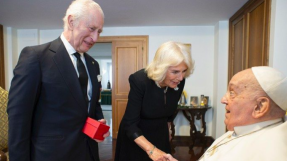
The Church of England has sought to reassure clergy of a seamless transition to a new system of registration for marriages coming into effect in England and Wales.
The new system being introduced by the Government affects church weddings and will replace the traditional registration of the marriage in the church register with a "marriage document" that the couple must sign at the ceremony and then present to the local register office within seven days. It has been reported that failure to do so will result in penalties of up to £1,000 for the couple.
No date has been set for the implementation of the new scheme but it caused a stir this week after the Faculty Office of the Archbishop of Canterbury released an update on the plans.
The Bishop of Truro, the Rt Rev Philip Mounstephen, suggested it was the first he had heard of the changes.
"All news to me. And rushed through ludicrously quickly," he tweeted.
There have been concerns that the Church of England will struggle to train up its 20,000 clergy before the new scheme comes into effect.
The Rev Marcus Walker, Rector at Great St Bartholomew's, in London, called it a "damnfool idea" that was "liable to result in totally unnecessary criminal sanctions for people on their happiest day".
"Now, instead of marriages being registered then and there by the priest, the couple will get a temporary certificate which they then have to present to the Register Office within a week of the wedding. When, y'know, they might want to be on honeymoon," he tweeted.
He warned that the changes could lead to an increase in unregistered marriages as well as a costly increase in workload for local register offices.
"With 60,000 religious weddings a year, this is going to result in a serious increase in the work of the registry office - and a quite significant increase in staffing, I'd imagine. Have they actually cleared this cost with the government or just ploughed ahead with it?" he continued.
"I predict bad news stories for the UK Home Office as a) unforseen costs appear and b) there is a significant rise in the number of unregistered marriages."
The Church of England's Director of Mission and Public Affairs, the Rev Dr Malcolm Brown, sought to allay concerns in a statement on Friday in which he said Church officials were in "close disucssions" with the General Register Office (GRO) to ensure that the change to the new system would be "as smooth and as seamless as possible".
He said that a formal announcement would be made once the exact details of the new system had been confirmed with the GRO, and that training would be made available in time for clergy.
"I want to reassure clergy and couples planning a marriage that we are absolutely committed to making the new system work within the context of a Church of England marriage service and the GRO has promised to provide training and comprehensive user-friendly information for clergy," he said.
"We are currently in discussion with the GRO about the exact shape that will take and will update clergy as soon as the details have been finalised.
"Although no firm date has yet been set for the introduction of the new system we are aware of the desire to implement it as soon as possible.
"A church wedding is a very special day where unique promises are made before God and in the presence of friends, family and the wider community in a timeless setting, marking the beginning of their married lives together."
Addressing the apparent confusion among clergy on social media, the Church of England also clarified that their status as marriage registrars has not changed.
Scottish clergy, who already record marriages along the lines of the system being rolled out in England and Wales, waded into the Twitter debate by saying that they had not encountered any problems.
Rev Alistair May, minister at Stonelaw Church in Rutherglen, South Lanarkshire tweeted: "It's the law in Scotland, has been for decades, and it works fine. I've never heard of any criminal sanctions."
Kevin Holdsworth, Provost of Glasgow Cathedral, said of the scheme: "It is remarkably similar to the way marriages are registered in other parts of the UK without any problems."













